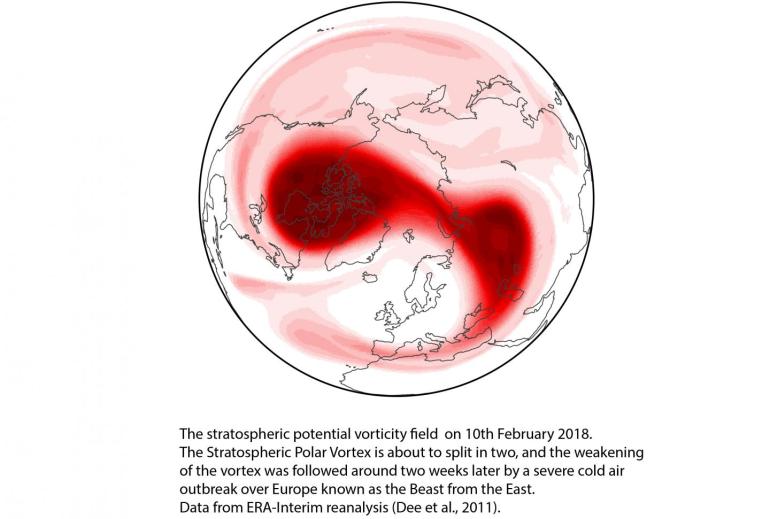A joint research team from several British universities announced that it can be said with a large degree of confidence that the stratosphere is experiencing from January 5 this year an unusual climatic condition called "sudden stratospheric warming", which may cause a severe cold wave within weeks. In different parts of the world.
Sudden warming
The stratosphere of the atmosphere, the Stratosphere, which contains within it the "ozone layer" and starts from 10 kilometers above the earth's surface and extends to 50 kilometers. It is above the troposphere, which contains most of the weather effects that we feel.
According to a study, published in the Journal of Geophysical Research and announced by the University of Bristol, a participant in the study, in a press release, sudden stratospheric warming is a phenomenon in which temperatures rise in the stratosphere above the Earth's north pole, from a point of up to 70 degrees Celsius. Below zero to about 50 Celsius.
Consequently, this causes turbulence in the weather below it, specifically in the so-called polar current, which is a huge vortex of very cold air that only circulates within the boundaries of the Arctic circles.
But because of this sudden incident, this cold polar current becomes more widespread, affecting areas located below the Arctic circles, such as Europe and a large part of North America, causing severe cold weather, and this effect may reach the north of the Arab world, but in a weaker way.
The polar vortex splits into two small eddies due to the sudden stratospheric warming in 2018 (Euric Alart)
According to the study, by examining 40 sudden stratospheric warming that occurred during the past 60 years, about two-thirds of them were the cause of very cold weather waves that swept through Europe, northern North America and Asia, with heavy snowfall.
Accordingly, there is a "high" possibility that cold waves will occur during the next few weeks, especially since the current polar vortex tends to split into two smaller, more widespread spirals.
In February 2018, the severe cold wave that swept Britain and Ireland was called the "Beast from the East", and was caused by an event similar to the top of the Arctic, where a warming stratosphere triggered the start of cold weather.
According to the new study, the sudden stratospheric warming is a phenomenon that is not fully understood, but despite this, this is the first time that researchers have been able to study with such precision that they can predict when the cold waves will come because of them.

